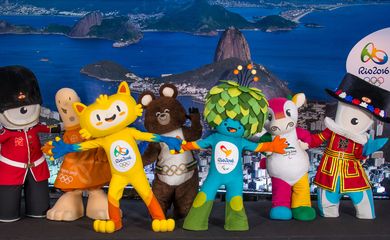Rio 2016 to use electric cars to transport athletes


Rio 2016 Organizing Committee Director-General Sidney Levy (left) welcomes François Dossa, head of Nissan's Brazilian base, where the fleet for the Olympic Games comes from. 

About 30 electric vehicles will be used for transporting athletes within the Olympic Village in the Rio 2016 Games, Nissan car maker announced Monday (Jul. 11) at the official delivery ceremony for a total 4,200 vehicles that will be used in the Rio 2016 Olympic and Paralympic Games. Vehicle models include hatchbacks, sedans, pickup trucks, and electric cars. Nissan is an official Rio 2016 sponsor.
François Dossa, president of Nissan Brazil, said the electric cars will take Brazilian medalists from the competition venues to Brazil's hospitality house at the event, the Casa Brasil, and can be charged up at onsite charging points.
The vehicles were used as part of a four-year electric taxi experiment that ran in Rio de Janeiro and São Paulo until April. During this period, 25 cars traveled 2.2 million kilometers and avoided 340 tons of carbon dioxide (CO2) emissions. A fully charged battery has enough power to travel 160 kilometers.
Mário Andrada, executive director of Communications for Rio 2016, pointed out mobility was the most important change to the city with the Games. “The central area of the city has got a full overhaul, new tunnels have been built, and BRT [Bus Rapid Transit] services have been extended to areas that did not use to be accessible by fast, high-demand travel services before.”
Hortência Marcari, who attended the electric car delivery ceremony on behalf of Brazilian athletes, noted that, in addition to projects that have “transformed the city,” the legacy of the Olympic and Paralympic games will be inspiring children with Olympic values.
Translated by Mayra Borges
Fonte: Rio 2016 to use electric cars to transport athletes



